第27章 LETTER 4(5)
Whether Epaminondas or Phocion,for instance,the Decii,or the kipios,have not raised in his mind a flame of public spirit,and private virtue?and whether he has not shuddered with horror at the proions of Marius and Sylla,at the treachery of Theosotus and Achillas,and at the consummate cruelty of an infant king?,'Quis non contra Marii arma,et contra Sylla proionem concitatur?Quis non Theodoto,et Achilla,et ipsi puero,non puerile auso facinus,infestus est?"If all this be a digression,therefore,your lordship will be so good as to excuse it.
II.Of the Method and Due Restrictions to be Observed in the Study of It What has been said concerning the multiplicity of histories,and of historical memorials,wherewith our libraries abound since the resurrection of letters happened,and the art of printing began,puts me in mind of another general rule,that ought to be observed by every man who intends to make a real improvement,and to become wiser as well as better,by the study of history.I hinted at this rule in a former letter,where I said that we should neither grope in the dark,nor wander in the light.History must have a certain degree of probability and authenticity,or the examples we find in it would not carry a force sufficient to make due impressions on our minds,nor to illustrate nor to strengthen the precepts of philosophy and the rules of good policy.
But besides,when histories have this necessary authenticity and probability,there is much discernment to be employed in the choice and the use we make of them.Some are to be read,some are to be studied;and some may be neglected entirely,not only without detriment,but with advantage.Some are the proper objects of one man's curiosity,some of another's,and some of all men's;but all history is not an object of curiosity for any man.He who improperly,wantonly,and absurdly makes it so,indulges a sort of canine appetite:the curiosity of one,like the hunger of the other,devours ravenously and without distinction whatever falls in its way.but neither of them digests.They heap crudity upon crudity,and nourish and improve nothing but their distemper.
Some such characters I have known,though it is not the most common extreme into which men are apt to fall.One of them I knew in this country.He joined,to a more than athletic strength of body,a prodigious memory;and to both a prodigious industry.He had read almost constantly twelve or fourteen hours a day,for five-and-twenty or thirty years;and had heaped together as much learning as could be crowded into a head.In the course of my acquaintance with him,I consulted with him once or twice,not oftener;for I found this mass of learning of as little use to me as to the owner.The man was communicative enough:but nothing was distinct in his mind.How could it be otherwise?
he had never spared time to think,all was employed in reading.His reason had not the merit of common mechanism.When you press a watch or pull a clock,they answer your question with precision;for they repeat exactly the hour of the day,and tell you neither more nor less than you desire to know.But when you asked this man a question,he overwhelmed you with pouring forth all that the several terms or words of your question recalled to his memory:
and if he omitted any thing,it was that very thing to which the sense of the whole question should have led him and confined him.To ask him a question,was to wind up a spring in his memory,that rattled on with vast rapidity,and confused noise,till the force of it was spent:and you went away with all the noise in your ears,stunned and uninformed.I never left him that I was not ready to say to him,"Dieu vous fasse la grace de devenir moins savant!"a wish that La Mothe le Vayer mentions upon some occasion or other,and that he would have done well to have applied himself upon many.
He who reads with discernment and choice,will acquire less learning,but more knowledge:and as this knowledge is collected with design,and cultivated with art and method,it will be at all times of immediate and ready use to himself and others,Thus useful arms in magazines we place,All rang'd in order;and disposed with grace:
Nor thus alone the curious eye to please;
But to be found,when need requires,with ease.
You remember the verses,my lord,in our friend's Essay on Criticism ,which was the work of his childhood almost;but is such a monument of good sense and poetry as no other,that I know,has raised in his riper years.
He who reads without this discernment and choice,and,like Bodin's pupil,resolves to read all,will not have time,no,nor capacity neither,to do any thing else.He will not be able to think,without which it is impertinent to read;nor to act,without which it is impertinent to think.He will assemble materials with much pains,and purchase them at much expense,and have neither leisure nor skill to frame them into proper scantlings,or to prepare them for use.To what purpose should he husband his time,or learn architecture?
he has no design to build.But then to what purpose all these quarries of stone,all these mountains of sand and lime,all these forests of oak and deal?"Magno impendio temporum,magna alienarum aurium molestia,laudatio haec constat,O hominem literatum!Simus hoc titulo rusticiore contenti,O virum bonum!"We may add,and Seneca might have added in his own style,and according to the manners and characters of his own age,another title as rustic,and as little in fashion,"O virum sapientia sua simplicem,et simplicitate sua sapientem?O virum utilem sibi,suis,reipublica,et humano generi!"I have said perhaps already,but no matter,it cannot be repeated too often,that the drift of all philosophy,and of all political speculations,ought to be the making us better men,and better citizens.
Those studies,which have no intention towards improving our moral characters,have no pretence to be styled philosophical."Quis est enim,"says Tully in his Offices,"qui nullis officii praeceptis,tradendis,philosophum se audeat dicere?"Whatever political speculations,instead of preparing us to be useful to society,and to promote the happiness of mankind,are only systems for gratifying private ambition,and promoting private interests at the public expense;all such,I say,deserve to be burnt,and the authors of them to starve,like Machiavel,in a jail.